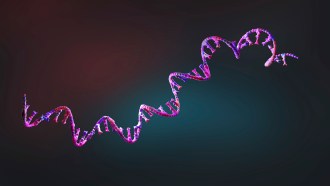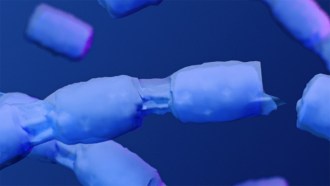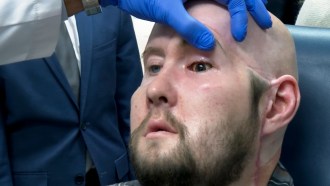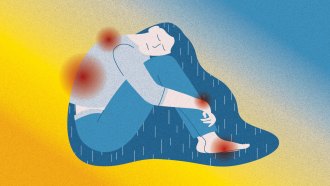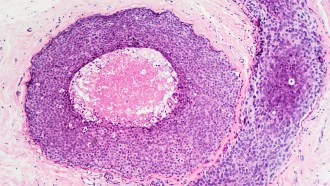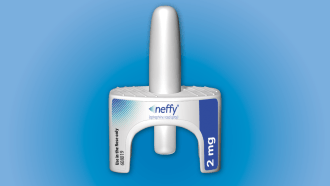Early mRNA research that led to COVID-19 vaccines wins 2023 medicine Nobel Prize
Biochemists Katalin Karikó and Drew Weissman overcame hurdles that enabled vaccine development
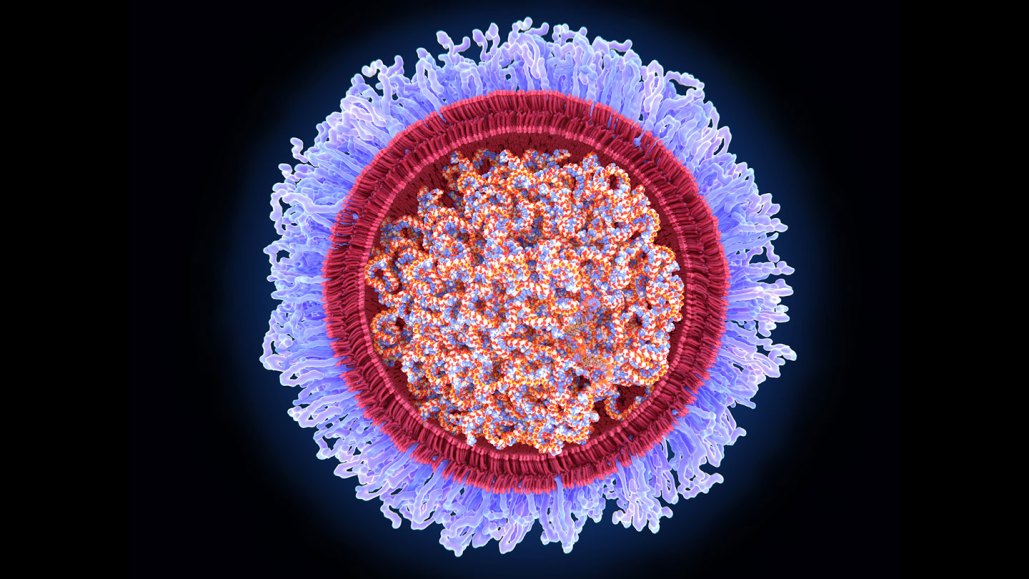
Researchers Katalin Karikó and Drew Weissman discovered how to deliver mRNA into cells inside the body by enveloping the molecule inside lipid bubbles (illustrated). Technology that was essential for developing some COVID-19 vaccines earned the pair the 2023 Nobel Prize in physiology or medicine.
JUAN GAERTNER/SCIENCE PHOTO LIBRARY/GETTY IMAGES


